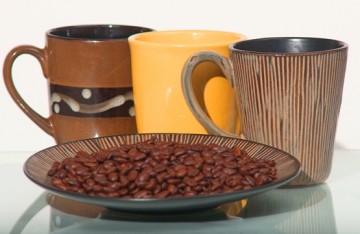Be Label Smart
The term multigrain first caught my eye, when the traditional Aashirvaad brand of wheat atta (flour) turned multigrain. The atta contains five grains apart from wheat, and is termed healthy. So I naturally assumed the term multigrain as being healthy for my family.
Today the market is buzzing with multigrain products of all types from biscuits, and snacks, to dosa, noodles, bread etc. But does multigrain really live up to its hype?
Multigrain Definition
A food containing more than one grain is termed multigrain. So a multigrain signifies that the product often contain grains like oats, ragi, maize, wheat, soya etc. So you get the goodness of all these grains in your food, right?
This is where we have a bit of thinking to do as we will soon discover.
Multigrain Misconception
If you are equating the term multigrain with whole grains and health then you could be in a bit of trouble. Whole grains mean that all parts of the grain and its kernel (germ, bran and endosperm) are used. This is a healthy option, as the complete grain product is used which is loaded with fiber and nutrients. The outer part, which is the bran, contains B vitamins and fiber, while the the germ is loaded with proteins and antioxidants, and the endosperm contains starch and gluten.
But multigrain does not necessarily mean whole grain. A multigrain product can contain processed or refined flour, in which case the goodness of wholegrain will be absent in the product.
The process of refining can take away the bran; leach away the fatty acids from germ, leaving only the endosperm which is less in nutrients. So though multigrain contains more than one grain, it may not signify the usage of whole grains.
Check Labels
Labels can give you a fair idea as to what the product contains. Labels help you understand the list of ingredients present in the product, and also help you understand their percentage. So many multigrain products can:
- Be refined products with Maida, or wheat flour usage, but with a bit of multigrain in it. In this case you are consuming processed products, which are de-husked, and have lost most of its nutrients like fiber, vitamins and phytonutrients.
- Or they may contain very less percentage of grains like ragi-2%, rice-2%, etc, and the mention of a generic term ‘flour’ with no mention of whether it is wholegrain at all.
- The product could be enriched or fortified. This means when the grain is polished, and refined certain nutrients get lost. So the product is then enriched with essential minerals, calcium, etc to substitute the lost nutrients. Due to addition of minerals the product is slightly more nutritious, compared to its refined counterpart.
- Some breads or whole grain products will also have a Whole Grain Council stamp, which makes it easier for you to identify whether it is whole grain or a de-husked variety. Don’t go by the looks of the product, as some manufacturers can fool the consumers by adding food additives, malt and coloring, to make it look like whole grain.
So always check the label for terms like ‘enriched’, ‘wholegrain’, the ingredients and their percentages. If the multigrain product contains at least 30% of the whole grain, it is better than any refined product.
When Using Multigrain Products At Home
- Some products may have a high content of fat along with fiber content. So check out for your cholesterol levels, while consuming such products.
- An adult should consume at least 28grams of whole grains in his/her diet. Some of the good sources of grains are brown rice, maize, ragi, or rolled oats, which are better for the body in the long run.
- Check out if you have wheat intolerance, or allergies, when using multigrain products.
- Multigrain products, which contain whole grains, and fewer chemicals, are less likely to remain fresh after a few days. Multigrain breads come in this category and they can encounter dryness very soon.
Bottom Line
A multigrain product with whole grain products can protect you against a host of diseases like heart, cancer and diabetes. They are also rich in vitamins and nutrients. Being loaded with fiber they are digested slowly and less amount of the food is converted in to fat. Just be label smart when choosing multigrain products.






